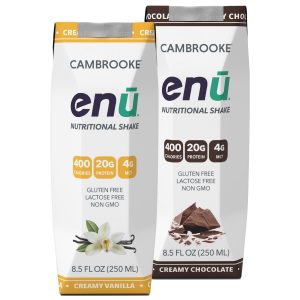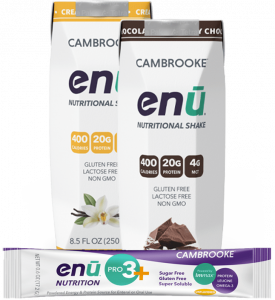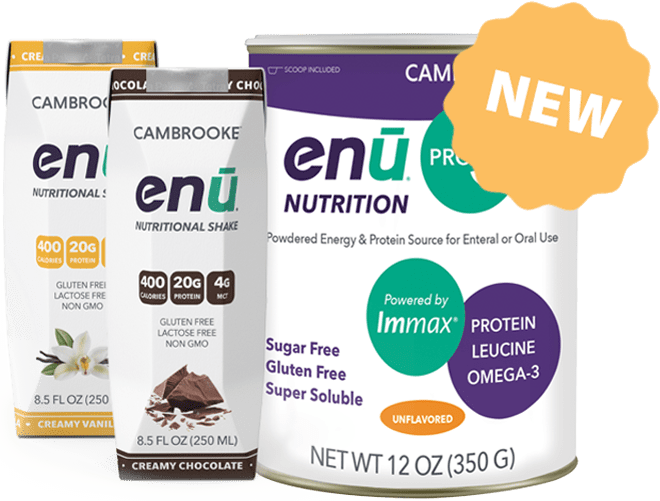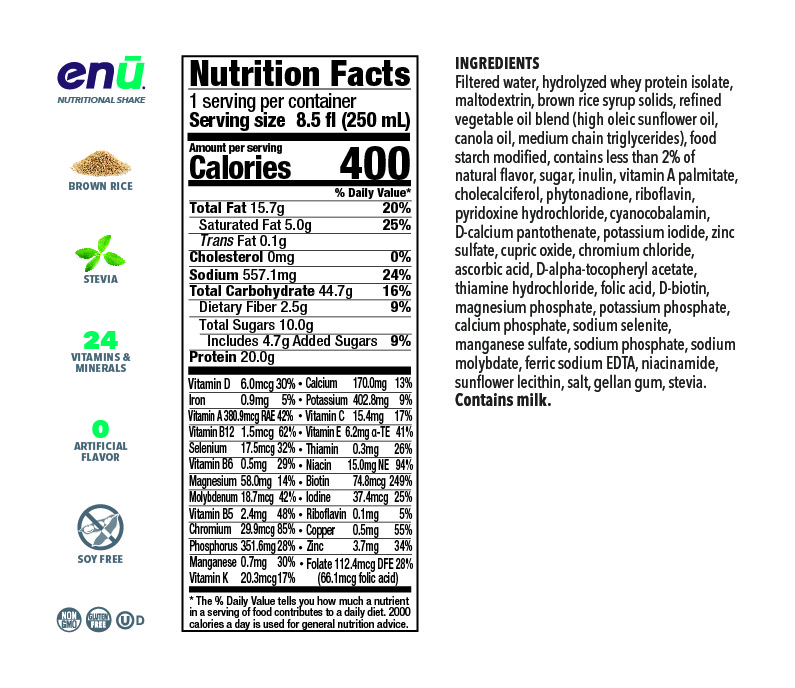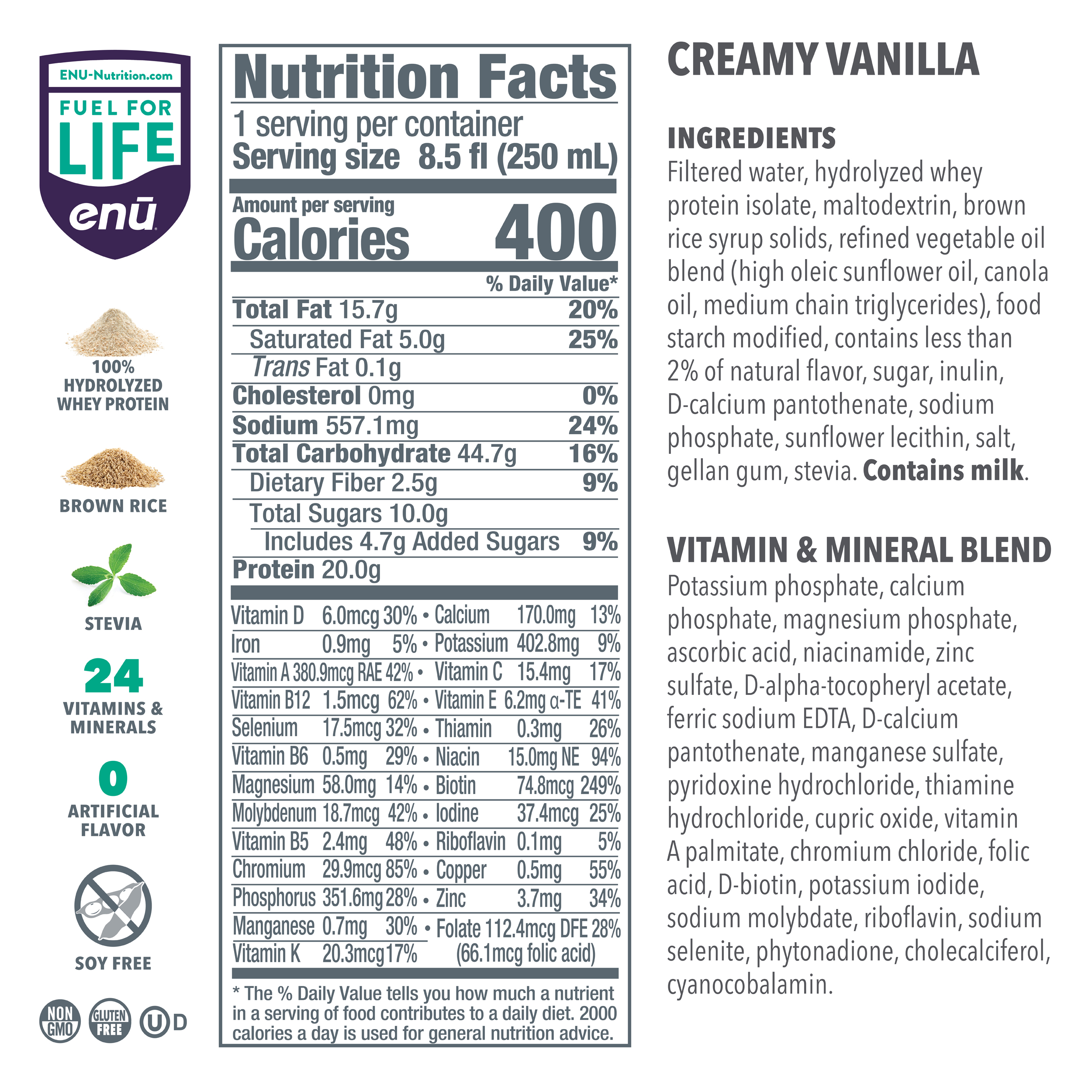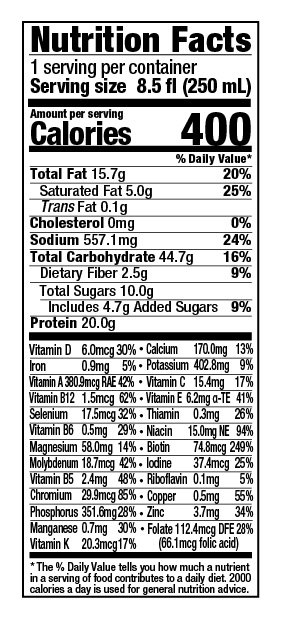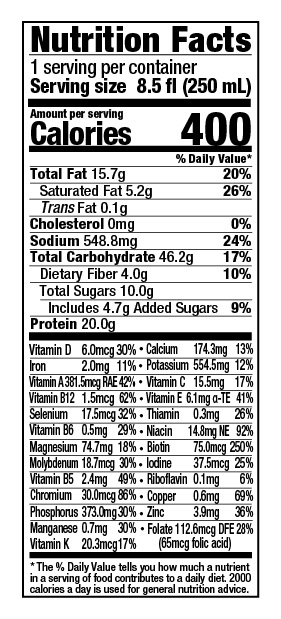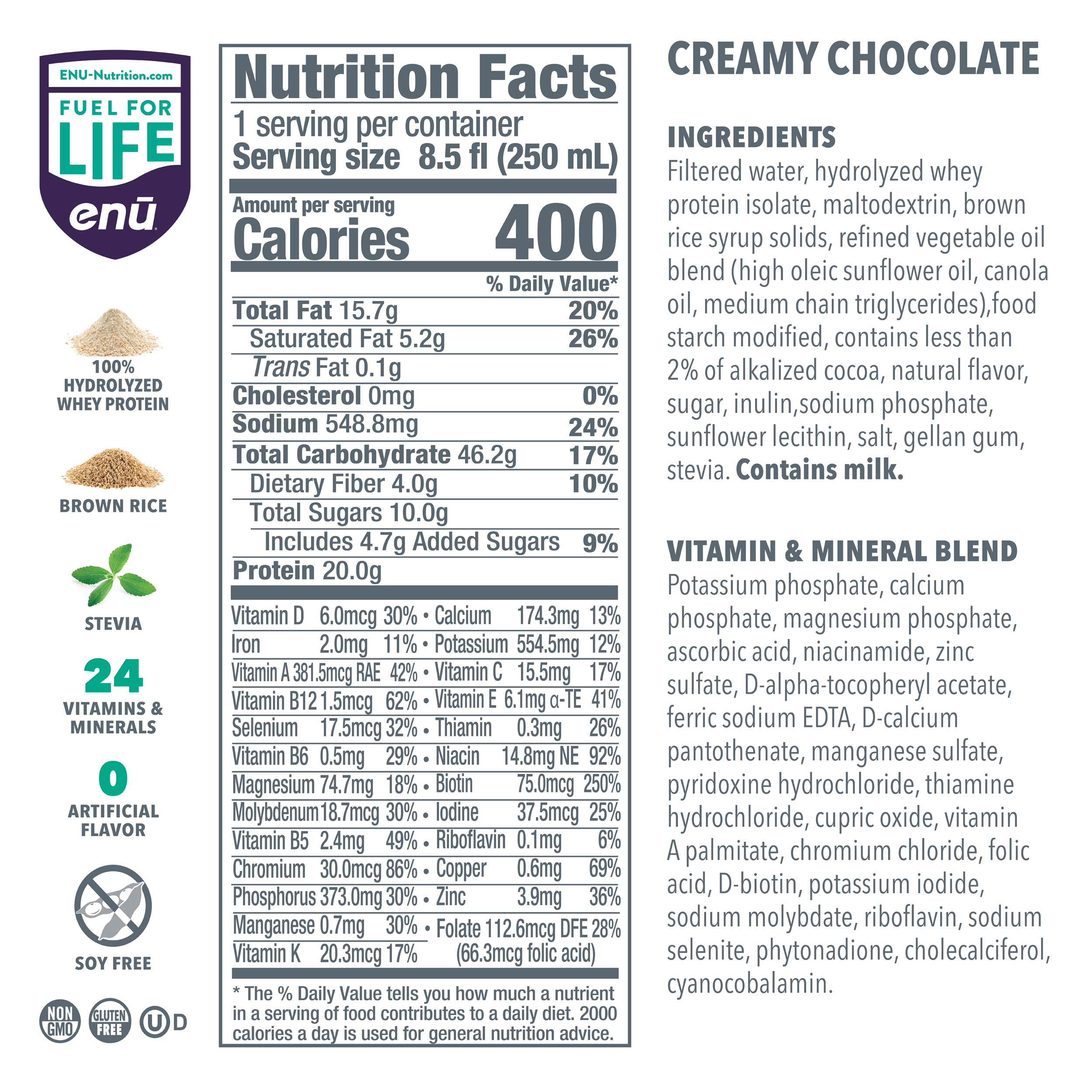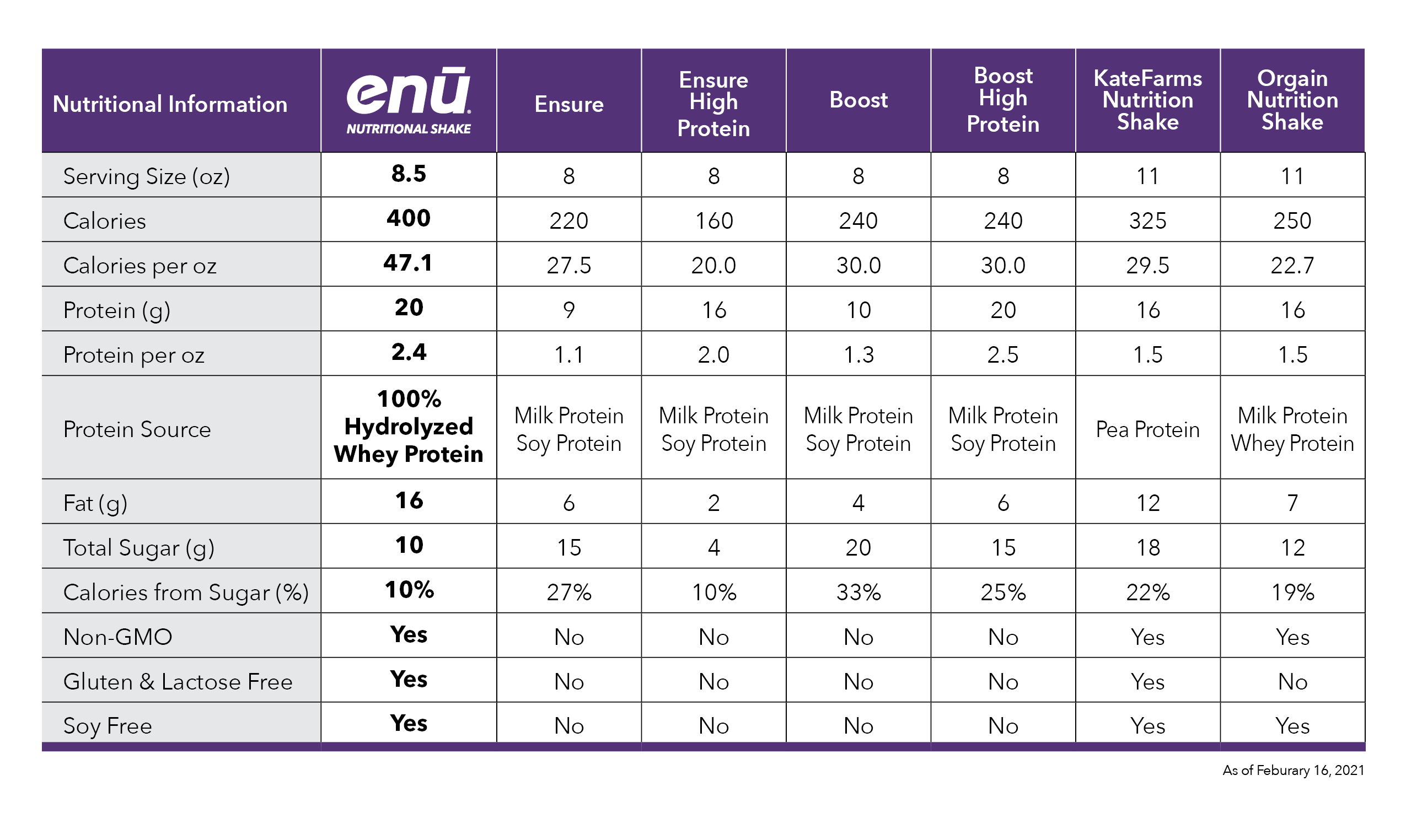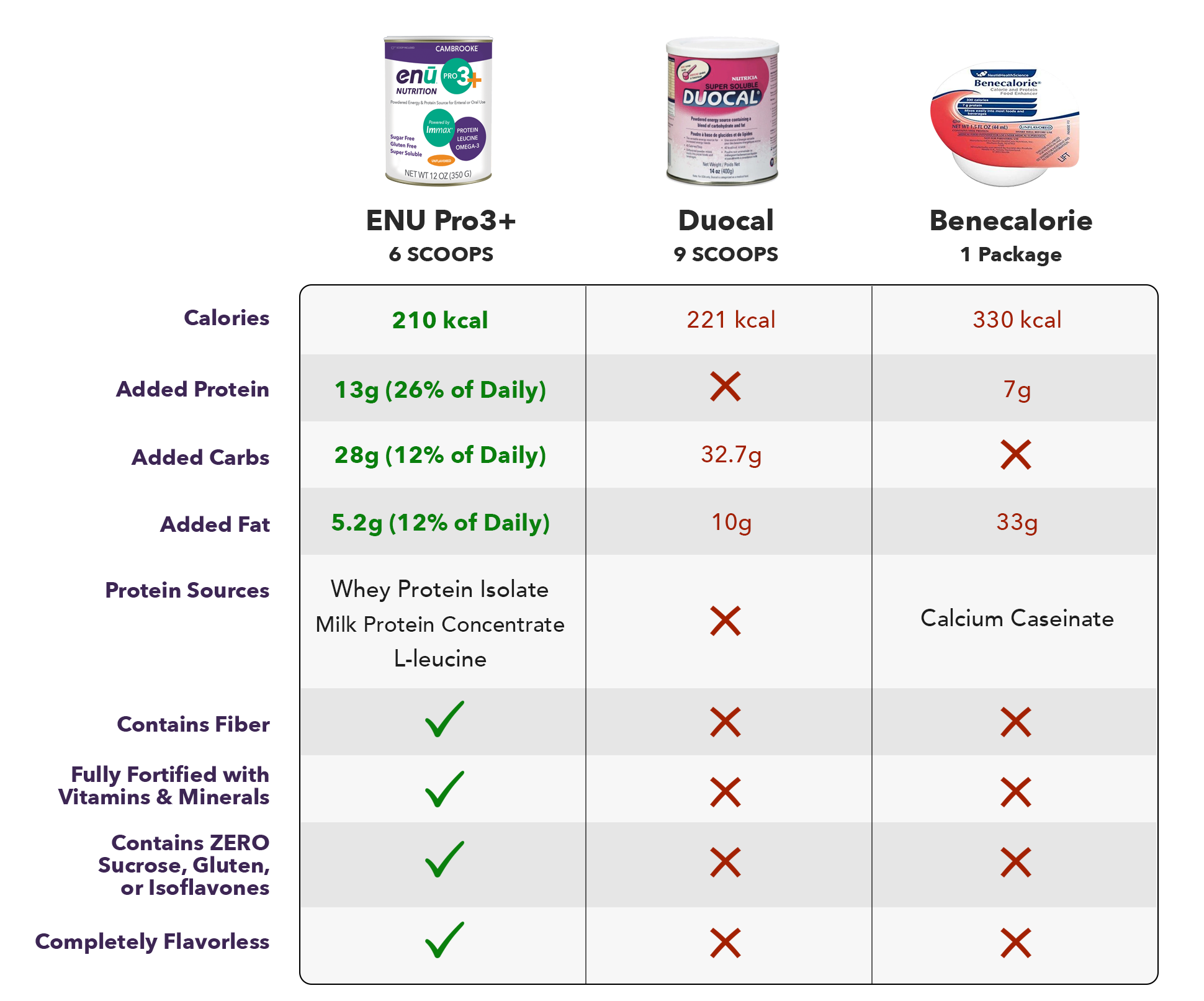
Get a FREE
ENU Intro Pack*
*Just Pay $2.00 Shipping
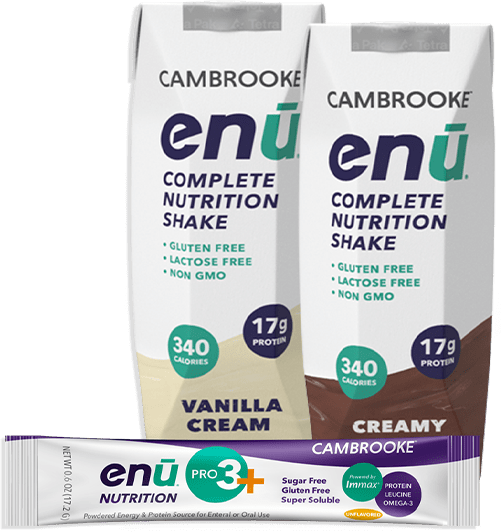
How Can a Skinny Person Gain Weight?
Though much of the focus around the world – culturally speaking – is on finding ways to lose weight, being too thin can often be as much of a health challenge as being overweight or obese. Those who are underweight tend to lack the energy reserves found in those with stores of body fat, and they can sometimes lack adequate muscle mass as well. Despite this, few resources are devoted to helping skinny people gain weight, making proper weight management a potentially confusing endeavor. One crucial point to note is that gaining weight too quickly or using unhealthy methods can be potentially dangerous, so it’s important to find safe ways to put on some pounds. So, how can a skinny person gain weight safely and effectively? To find out, keep reading as the people at ENU offer some answers.
How Weight Gain Works
Weight gain and weight loss both work on the same general principle, which involves comparing the number of calories you take in to the number your body uses over the course of the day. Simply put, if you eat more calories than your body uses, you’re left with excess energy that gets stored as fat, while eating fewer calories than you need leaves you with a deficit and forces your body to use its reserves, burning fat in the process.
If you want to gain weight – whether as part of a medical nutrition support diet, sports nutrition diet, or something else – you need to end up with more calories than you used at the end of the day; determining the exact numbers for this can be tricky, but a good rule of thumb is to use the standard 2,000-calorie benchmark and adjust your diet as needed. If you’re struggling with this, a dietician or nutritionist can help.
Generally speaking, most experts recommend that you don’t gain more than 1-2 pounds per week unless directed by your doctor. A single pound of body fat is worth about 3,500 calories, so gaining one pound per week means that you should aim to get 500 extra calories in your diet each day.
However, it’s advisable that you try to gain more than just visceral fat – the soft stuff that collects around your midsection. Instead, aim to gain some of your weight as muscle mass, even if your goal isn’t bigger biceps. To do this, include a healthy amount of protein in your diet (you should get at least 20% of your calories from protein) and exercise, even if it’s just a walk around your neighborhood or a simple routine at home.
Foods to Help Skinny People Gain Weight
The calculus of weight gain may be relatively simple, but choosing how to implement it might not be. There are many foods that are high in calories, and while these can certainly help you gain weight, it might not be the healthy kind. Try to include some of the following foods in your diet to put on a few pounds in a safe and effective way.
Look for Lean Protein
Burgers and steaks may be tasty and full of protein, but the nutrients they contain come with some unwanted baggage – namely saturated fat and LDL cholesterol. Instead, consider lean sources of protein, such as white meat from chicken or turkey (preferably grilled), white-fleshed fish like flounder and tilapia, egg whites, tofu, beans, or protein shakes for weight gain.
One other source to note: Dairy products can provide a significant amount of protein, as well as important vitamins and minerals like calcium, phosphorus, potassium, and vitamins A, D, and B12. A single glass of whole milk contains 8 grams of protein, making it an easy way to supplement your diet with this macronutrient.
Stick to Healthy Fats
They may get a bad rap, but fats are a necessary part of most diets, especially those aimed at increasing weight. Fats are very calorie-dense, so they can help you meet the increased energy needs that come with a weight gain diet, but it can be all too easy to think that fried foods provide the fats you need. Regardless of your need for weight gain, saturated fats and trans fats should be avoided, as they cause your LDL cholesterol to rise and can increase your risk of heart disease.
Instead, focus your attention on unsaturated fats, such as olive oil or coconut oil. Cook with these oils to add fats to your diet that can help fight inflammation and improve heart health while still providing plenty of calories.
Try Adding Supplements
If you’re struggling to fit a greater volume of food into your diet, consider adding a meal replacement shake or a similar nutritional supplement to your diet. These products can often supply beneficial nutrients in a convenient form.
Take ENU meal replacement shakes, for example. Each carton contains 400 calories – most of the 500 extra calories you’d need for the day – in the form of heart-healthy fats derived from coconut and sunflower oils, lean protein from whey and soy isolates, and complex carbs provided by healthy meal replacement shake ingredients like quinoa, brown rice, and tapioca. Plus, each ENU shake contains a blend of 24 essential vitamins and minerals; enjoy one between meals or after dinner for a well-rounded addition to any weight gain diet.
Balanced Nutritional Shakes for Healthy Weight Gain
If a major illness has left you skinnier than you were before, or if you’ve always been thin and want to gain a little weight in a healthy way, try a meal replacement shake from ENU. Our protein shakes for weight gain can help you reach your weight and fitness goals in a tasty, convenient way. To learn more about all our products, visit us online or call (855) 266-6733 today.
